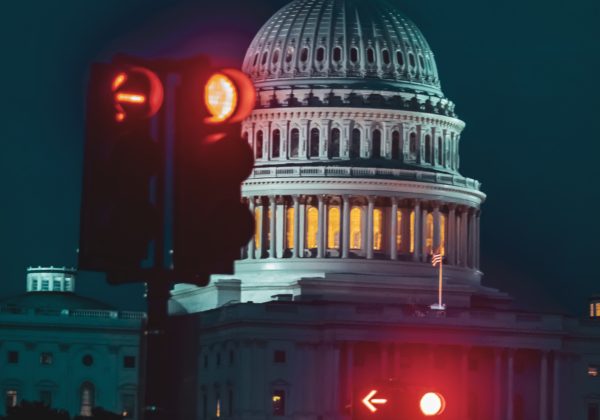
MYTHOLOGY VS DEMOCRACY? QAnon Shaman takes over Capitol Hill
The world was taken by surprise on the 7th January, in a truly history making moment, as Trump supporters marched toward the Capitol building in Washington DC on the day Congress was meeting to confirm Joe Biden’s election victory. Lawmakers were forced to take shelter, the building was put into lockdown and five people died in the chaos that followed the pro-Trump rally near the White House. The great and good, along with us ordinary folk, are all trying to make sense of what happened, or perhaps I should say what is happening. Many of us are asking the question; what on earth is going on? Can this particular event simply be put down to a deeply disturbing case of civil disobedience or is there more to it?
Making sense of the events of that day and what it says about the era in which we live is the pursuit of many. We also know that this pursuit, which we would call understanding the ‘signs (symbols) of the times’, featured in Jesus’ teaching. In Luke’s Gospel Jesus uses the agrarian metaphor of reading weather patterns to rebuke the Pharisees for their lack of spiritual discernment. He pointed out that they knew how to read the weather patterns by ‘the appearance of the earth and the sky’ and were able to use that data to make sound judgements about what to do as a consequence and yet they were unable to ‘analyse this present time’. They were incapable of discerning or making sense of the signs and symbols that pointed to a future destiny that was before their very eyes. The point Jesus is making is that tomorrow is shaped by what we see today. We, the church, have the responsibility to stand back and look for the signs that can be seen, to quote Luke, in ‘the earth and the heavens’ and make a judgement about what we should do as a consequence.
Is this a symbolic event?
We have to ask ourselves whether this event is symbolic of something greater than itself. What, if anything, does it ‘say’ to us? How are we to understand this moment in time, when the central figure captured by camera on multiple media channels is a mythological character, dressed as a Shaman? Jake Angeli, known as QAnon’s Shaman, takes centre stage in the takeover of a building that in many ways could be held up as global symbol and archetype of democratic freedom. Is there a ‘sign of the times’ to be understood?
Some of you reading this article may not have heard of QAnon or Jake Angeli. QAnon is a conspiracy theory with hundreds of thousands, if not millions, of followers. In brief, the QAnon believers are convinced that the world is run by a Satanic group of paedophiles that includes top Democrats and Hollywood elites, and that President Trump has spent years leading a top-secret mission to bring these evildoers to justice. Their followers were told that Trump would be re-elected with a landslide vote and that a coming “storm” would expose the global paedophile ring and bring its leaders to justice. Jake Angeli, (born Jacob Anthony Angeli Chansley), is a self-initiated Shaman for the QAnon movement. He’s also an actor and an activist.
We should also note that QAnon adherents also played a critical role in spreading misinformation about voter fraud, many are being barred by social media platforms and American police are treating the movement as a potential domestic extremist threat.
What can we learn from what we have seen?
The potential outcomes to this question are innumerable. I want to offer just three observations, all of which highlight some of humanity’s basics needs that are met by an encounter with the Gospel of Jesus.
A need for a transcendent reality
On Capitol Hill the IRRATIONAL collided with the RATIONAL. Apparent to everyone watching, orderly, democratic government procedure was taken over by a mob, allegedly incited by Trump, and led by this central figure, the QAnon ‘Shaman’. The radicalised mythological, empowered by conspiritual theory (spelling and pun intended), confronts the governing powers of Western democracy. In that moment it felt like we had stepped back in time and what was unveiled before us seemed to take the form of a story from the Middle Ages. A type of tribalism, spiritually charged with a mantra, salvific in nature, calling for the cleansing of America, for the exposure of unrighteousness and for judgement to be served on those it deemed profaners.
This episode, the like of which we would have previously deemed impossible, played out before our eyes. Perhaps one of the things it tell us is that humans cannot live by rational consciousness alone and that many are searching for something that transcends reason and logic. Faith, in all its forms, addresses the issues beyond the scope of what is considered rational. The human soul longs for something ‘beyond’, something transcendent, elements of which, undoubtedly will defy augmentation. Hope, for example, is not purely fixed in the cogent logic of science. I think this incident illustrates so clearly that there remains a search for the ‘significant other’, something beyond well-reasoned pluralism and the moral relativism of our day.
The Gospel addresses these issues. Jesus himself says ‘man shall not live by bread alone but by every word that comes from the mouth of God’. The passage continues and he goes on to say that he is the ‘bread come down from heaven’. His declaration doesn’t deny material reality in favour of the mystical, instead he conjoins both realities. Bread on your plate is essential, but it’s not just your body that needs nourishing, so does your soul. Faith without reason leads to superstition, while reason without faith leads to nihilism and relativism. The Gospel hold both in perfect tension.
The absence of a meta-narrative
Social and cultural change has accelerated at a rapid pace, fuelled by an obsession with the world of commodity and the progress of technology, particularly social-media platforms. Our collective jettisoning of the majority of, if not all, of the grand narratives that have traditional guided us, and our replacing them with new social and political ideologies birthed in the wake of a post-modern era, are bearing fruit. The reality of a foundationally different world is becoming increasingly evident. The absence of the meta-narratives that have guided previous civilizations creates a contextual void. Where is the framework for understanding life’s meaning and purpose and defining what it means to be human? The loss of an overarching narrative for life leads to the emergence of new ‘reasons for being’. The ascent of many new realities like Identity Politics, Wokeism, the Social Justice Movement and of course Conspiracy Theory are rapidly becoming the primary building blocks for civilization of the 21st century.
In this case, Conspiracy Theory, in the form of QAnon gives their disciples a reason being, a mission for living and a hope that one day, wrongs will be put right and justice will be done. ‘Evil’ will be ousted and a new life made possible.
The Gospel addresses this issue too! Through the disarming, self-giving love of God made clear in Christ we are invited into the greatest mission of all, that of bringing heaven to earth. Understanding of course that this great narrative has a final act, in which a tender loving and merciful Father will Himself, once and for all, put right what is wrong and execute justice perfectly. There is no better meta-narrative!
A reason to believe and a place to belong
Following this story, Kevin Roose, in his brilliant article for the Irish Times, reports about one of the QAnon’s most passionate believers. Her name is Valerie Gilbert. An intelligent woman, she’s a Harvard-educated writer and actor who lives in New York City. Valerie is a disciple who has counted the cost, forfeiting friends, family and reputation in the pursuit of ‘the truth’, as peddled by QAnon. Daily she gives herself to fighting the global paedophile ring. Roose makes the following observation:
“What attracts Gilbert and many other people to QAnon isn’t just the content of the conspiracy theory itself. It’s the community and sense of mission it provides. New QAnon believers are invited to chat rooms and group texts, and their posts are showered with likes and retweets. They make friends and are told that they are not lonely Facebook addicts squinting at zoomed-in paparazzi photos but patriots gathering “intel” for a righteous revolution.” (Irish Times Monday 18thJanuary 2021)
He also notices that there is a collaborative element to solving pieces of this complex web of crime that its deviants are supposedly perpetrating on a global scale. The fundamental human thirst to believe, to have faith in something, to belong and to find a family or community will always find a river to drink from.
When Luke the Gospel writer describes early church life, he has this to say; “All who believed were together and had all things in common; they would sell their possessions and goods and distribute the proceeds to all, as any had need. Day by day, as they spent much time together in the temple, they broke bread at home and ate their food with glad and generous hearts . . .” The description of the outworking of the Gospel here in the book of Acts makes clear that believing and belonging go together. Having faith in and following Christ is personal, but it is also communal – we become part of a community of believers. This faith community, unrestrained by institutionalism, is intended to be an example of community, people living in harmony, united by their loyalty to Jesus Christ. The church was intended to be a model society in a fractious, divided world.
Whilst humanity’s progress over hundreds of years is undeniable, the primeval powers of chaos, destruction and darkness lay in the shadow of civilisation’s stride. Whilst deeply and profoundly disturbed, I remain resolutely confident in the power of God to save. Salvation belongs to our God, who is seated on a throne and to the Lamb…. (Revelation 7:10).
As the pressure of monumental cultural change excerpts itself, as it did in the Apostle Paul’s context (Romans 1:16), we remain shameless in the declaration of the good news and resolute in our confidence in the Gospel of God. Why? Because it has the power to save. More than that, this rescuing love is not only for those that have a long-held faith (Jews) but also for those who have not yet heard of its redeeming power (Gentiles). Stand firm, stand tall, stand strong!
Related posts
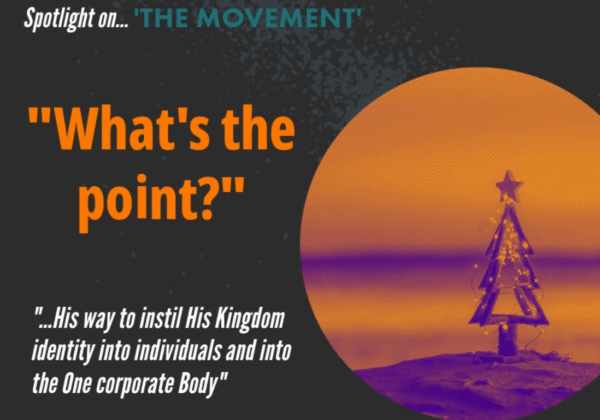 Feasts & Festivals – What’s the Point? - Together Narrative As 2023 draws to a close and the New Year almost upon us, I reflect on the past 12 months and focus on certain highlights that will remain with me for many years. One of these, for a whole variety of reasons, is undoubtedly the Together 23 Festival at Himley on July 8. […]
Feasts & Festivals – What’s the Point? - Together Narrative As 2023 draws to a close and the New Year almost upon us, I reflect on the past 12 months and focus on certain highlights that will remain with me for many years. One of these, for a whole variety of reasons, is undoubtedly the Together 23 Festival at Himley on July 8. […]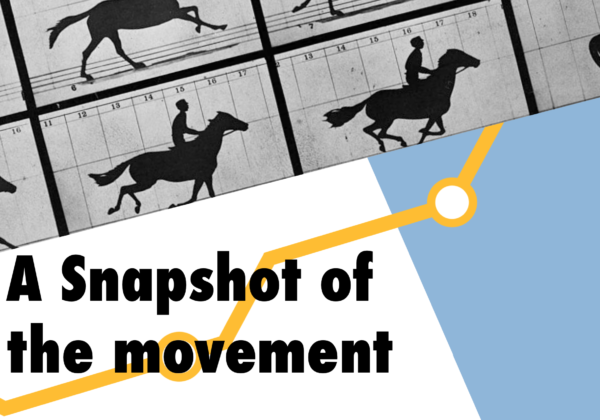 Snapshot – A review of a year of movement. - Snapshot 2023 – Love Black Country As we share this annual snapshot, we want to take a moment to express our gratitude to you all. Love Black Country has been part of this regional Church community for over 30 years, and it’s humbling to see the progress we’ve made together. This movement isn’t just about […]
Snapshot – A review of a year of movement. - Snapshot 2023 – Love Black Country As we share this annual snapshot, we want to take a moment to express our gratitude to you all. Love Black Country has been part of this regional Church community for over 30 years, and it’s humbling to see the progress we’ve made together. This movement isn’t just about […]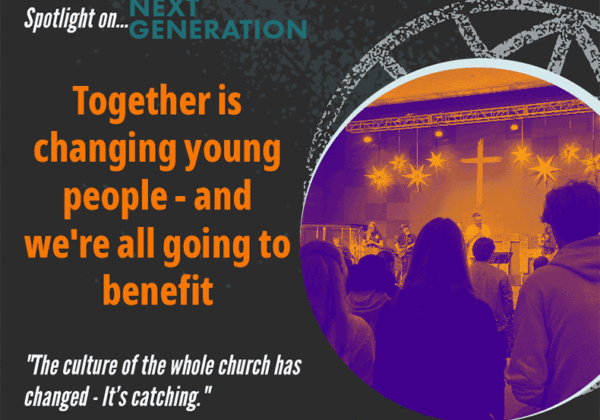 MOVEMENT – How a regional youth gathering changed a church - Last week 200 young people gathered TOGETHER from across the Black Country to worship & pray together, this regional evening was a roaring success with young people pouring themselves out for Jesus and coming forward for prayer. The sense of the spirit was tangible. We’re sure that investing in young people will feed, grow and […]
MOVEMENT – How a regional youth gathering changed a church - Last week 200 young people gathered TOGETHER from across the Black Country to worship & pray together, this regional evening was a roaring success with young people pouring themselves out for Jesus and coming forward for prayer. The sense of the spirit was tangible. We’re sure that investing in young people will feed, grow and […]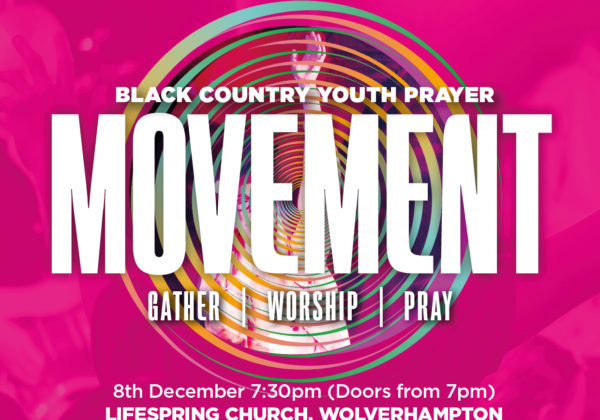 MOVEMENT – Youth Prayer for the Black Country - We’re back! After successfully gathering nearly 200 young people for the Youth Prayer Gathering in April, we’re keen to come together again. This time with a new name, as selected by young people at Together Festival MOVEMENT This is MOVEMENT, named by young people at Together Festival – a moment to worship, pray and gather […]
MOVEMENT – Youth Prayer for the Black Country - We’re back! After successfully gathering nearly 200 young people for the Youth Prayer Gathering in April, we’re keen to come together again. This time with a new name, as selected by young people at Together Festival MOVEMENT This is MOVEMENT, named by young people at Together Festival – a moment to worship, pray and gather […]